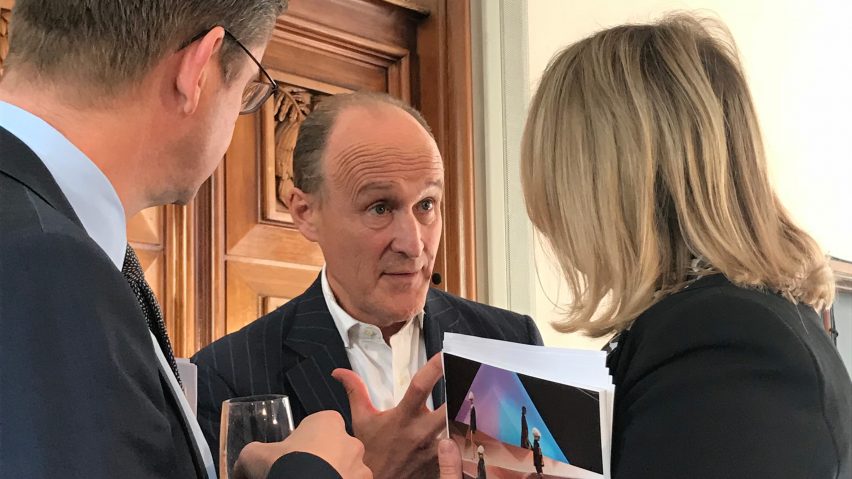Students don't need to take creative subjects at school as they are already exposed to creative processes thanks to mobile phones, according to the author of a new government-commissioned report on the UK's creative sector.
TV executive Peter Bazalgette launched his Independent Review of the Creative Industries today, stating that the sector could generate a million new jobs by 2030.
But the report fails to make recommendations to address the declining numbers of students taking creative subjects – a decline attributed to the introduction of the new English Baccalaureate (EBacc).
Many figures in the creative industries fear that the EBacc, which emphasises academic subjects such as maths and English, is leading to the marginalisation of creative subjects. This year saw a further five per cent drop in applications for art and design degrees.
Most people in creative sector "have studied other things"
However Bazalgette said that most people in the creative industries didn't study creative subjects.
"You don't need to have a creative industries degree to work in the creative industries," he told Dezeen. "If you analyse the people in this room [at the launch of the report], the majority of them would have studied other things. What you need is a desire to create things."
When asked how schoolchildren could be inspired to enter professions such as architecture and design if they are not taught creative subjects at school, Bazalgette said: "They're totally exposed to the idea that you can create things because they all have a smartphone in their pockets. Every one of them can now make a video in a way that was unthinkable when I saw a kid. So they're all exposed to creative processes all the time."
"That's not to say I'm not concerned," he added. "Of course I want creative disciplines studied. We have a network of art schools, music colleges and so on. We want them to prosper, want arts and culture to thrive in our schools and it's not always the case that it does."
Saturday Clubs could help kids "who really have a spark"
Instead, Bazalgette said that Saturday Clubs, where pupils aged between 13 and 16 attend voluntary classes in creative subjects on the weekend, could nurture the designers of the future.
"I'd like to see Saturday clubs right across the country," he said. "It's a thing for self election. We want kids who really have a spark, an idea, an ambition to get that."
Last year the Creative Industries Federation warned that the twin threats of Brexit and the fall in the number of students taking creative subjects could lead to a "talent crisis" in the industry.
Bazalgette's report is one of seven commissioned by the government into industry sectors it believes can help the UK continue to thrive after Brexit.

